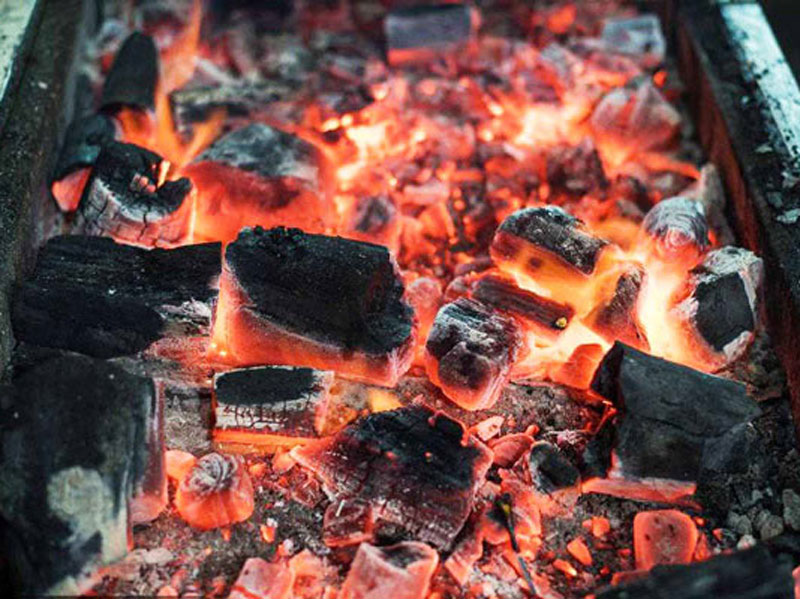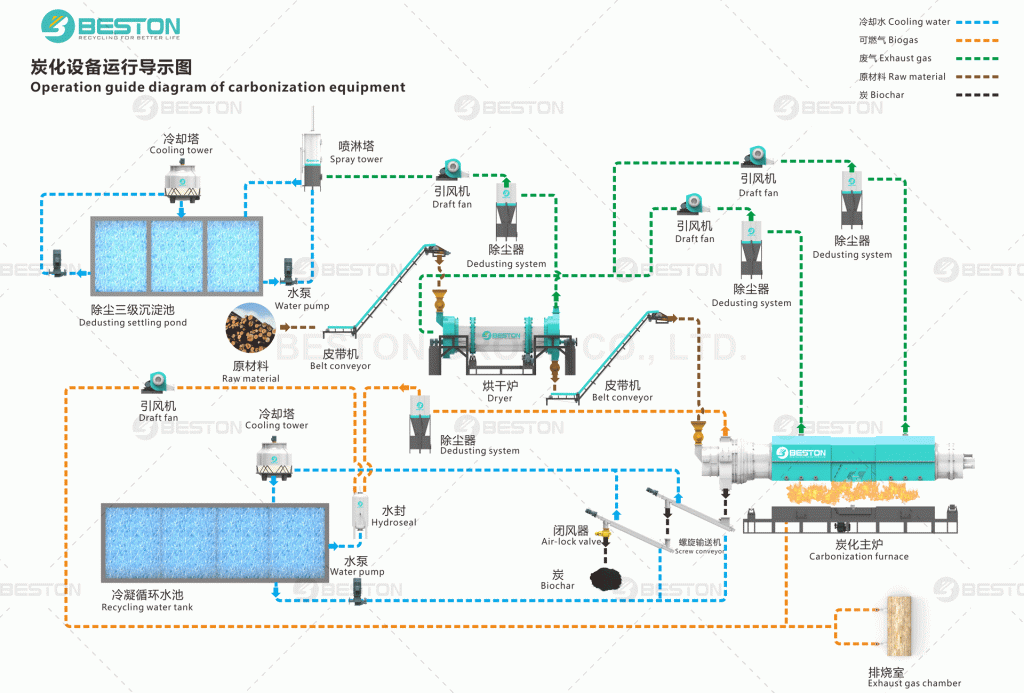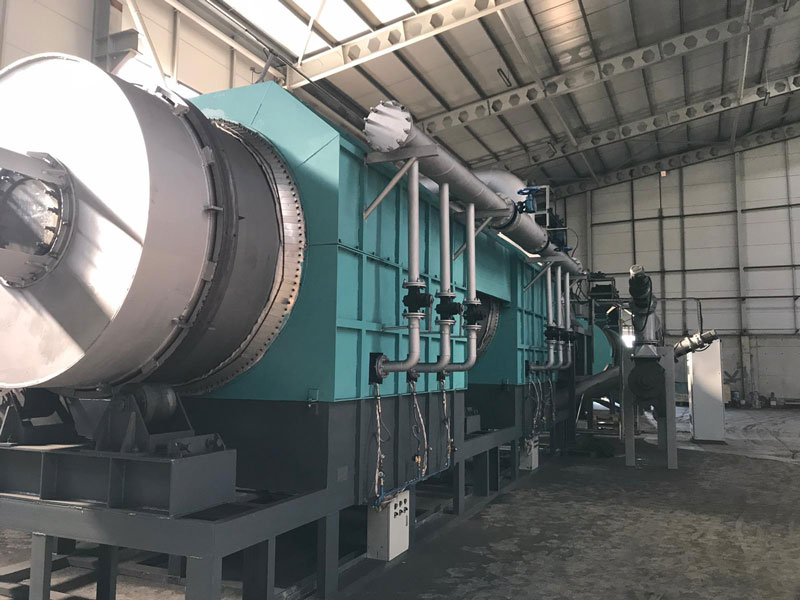Charcoal, an age-old fuel source, has been a fundamental part of human civilization for centuries. Today, with a growing emphasis on sustainability and renewable energy sources, charcoal production has undergone a transformation. Modern charcoal making machines have emerged as efficient, eco-friendly solutions to meet the demand for high-quality charcoal.
Raw Materials Selection
Selecting the right raw material is the cornerstone of successful charcoal production. The type of raw material you choose can have a profound impact on the quality and characteristics of the final charcoal product. Fortunately, there is a wide range of common raw materials to consider, each with its unique qualities that influence factors such as burn time, odor, and heat output. Let’s explore some of these key raw materials and their relevance in the context of charcoal production, especially in the context of using a sawdust/coconut shell/rice husk/wood charcoal making machine.
Moisture Content
Controlling the moisture content of your raw materials is crucial. Excessive moisture can hinder the pyrolysis process, leading to lower charcoal yields and increased energy consumption. Conversely, overly dry materials can combust prematurely. Optimal moisture levels typically range from 15% to 20%.
Carbonization Temperature
The temperature at which carbonization occurs plays a vital role in the quality of charcoal. Low-temperature carbonization (around 300°C) produces lighter, fast-burning charcoal suitable for grilling. High-temperature carbonization (above 600°C) yields denser, longer-lasting charcoal, ideal for industrial use.


Pyrolysis Process
Understanding the pyrolysis process is essential. Charcoal making machine utilizes a controlled heating process in the absence of oxygen to break down raw materials into charcoal. This process demands precision and consistency to produce high-quality charcoal efficiently.
Yield Optimization
Efficiency is key when investing in a charcoal making machine. A higher yield of charcoal per batch ensures cost-effectiveness and profitability. Continuous pyrolysis plants offer an advantage by allowing for a consistent output stream, reducing downtime between batches.
Emission Control
Environmental considerations are paramount. Ensure your charcoal making machine is equipped with effective emission control systems to minimize air pollution and protect both your workers and the environment.
Safety Measures
Safety should never be compromised. Invest in a machine with robust safety features, such as automatic shut-off systems, fire prevention mechanisms, and gas detectors to mitigate potential hazards.

Quality Assurance
Charcoal production is not only about quantity but also quality. Implement stringent quality control measures to guarantee that your charcoal meets industry standards and customer expectations.
Carbon Footprint
Reducing your carbon footprint is a laudable goal. Consider the sustainability of your chosen raw materials and the energy efficiency of your biochar production equipment to minimize environmental impact.
Market Research
Finally, before diving into charcoal production, conduct thorough market research to understand demand, pricing, and potential customers. Tailor your production to meet market needs effectively.
Conclusion
In the realm of charcoal production, the journey from raw materials to a high-quality finished product is marked by careful consideration and attention to detail. By selecting the right raw materials, optimizing your process, and embracing sustainability, you can harness the full potential of your carbonization machine. These key considerations pave the way for a successful and environmentally conscious venture in the world of charcoal production.